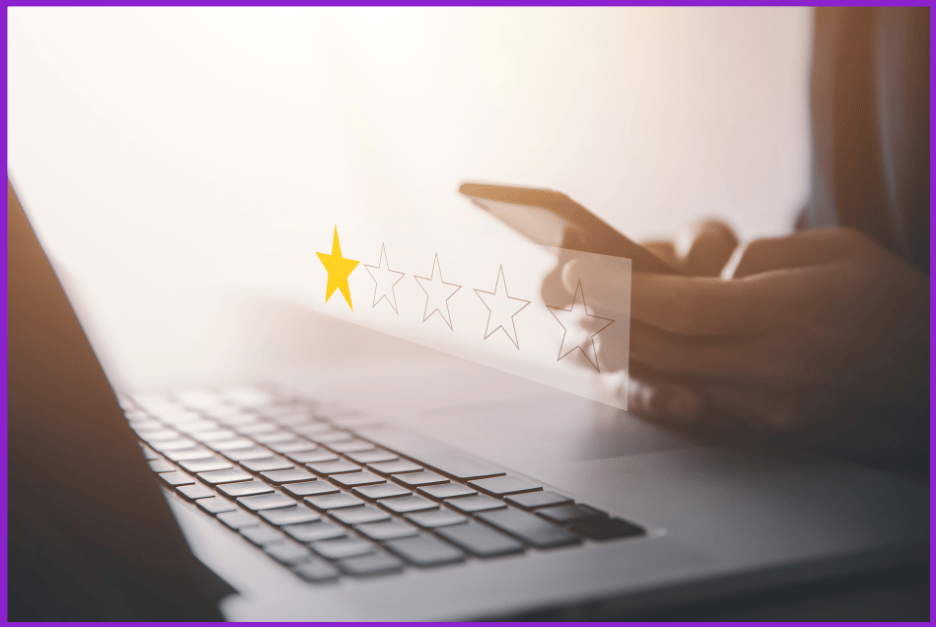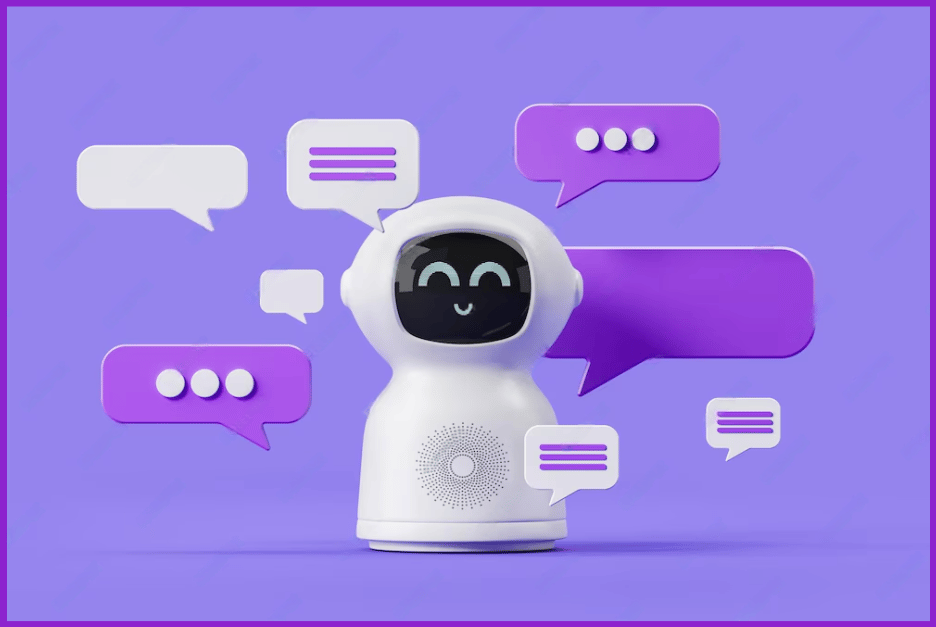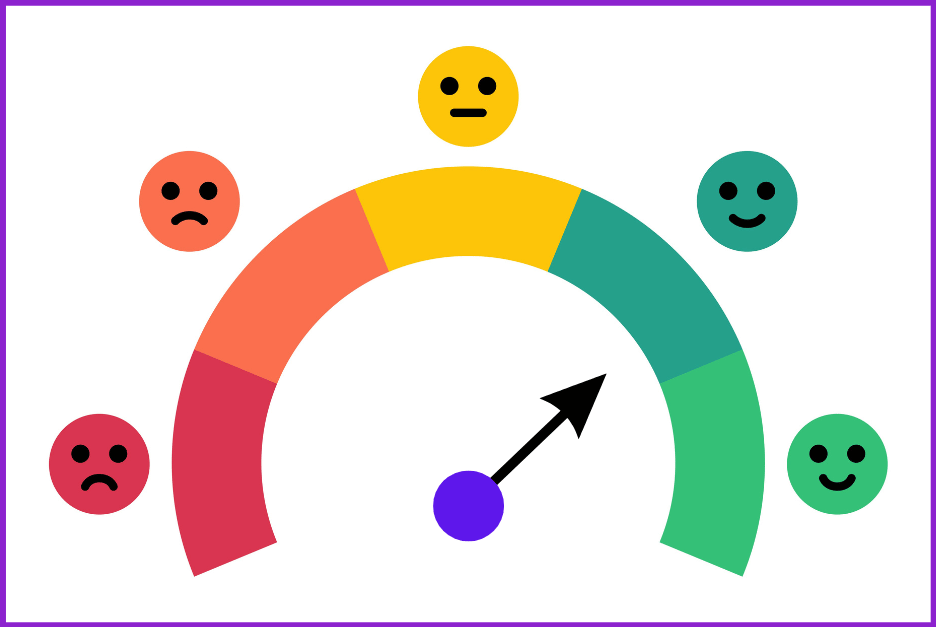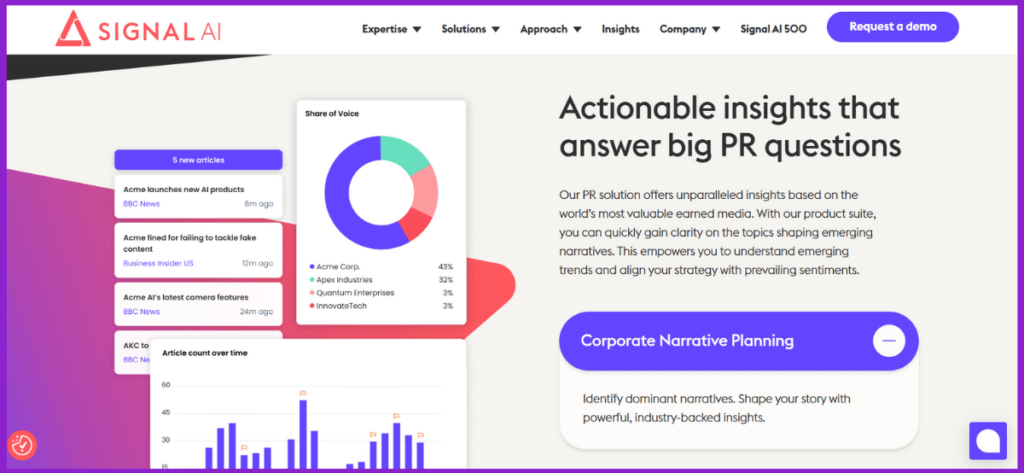
A rising e-commerce brand woke up to a nightmare – hundreds of negative reviews flooding the internet.
Accusations of scams, fake products, and terrible service spread like wildfire.
But here’s the twist: none of it was true. AI-powered bots had orchestrated the attack, damaging trust overnight.
Now, imagine a SaaS company facing the same crisis – but with AI on its side.
Instead of scrambling, it used AI-driven monitoring to detect fake reviews, counter misinformation, and protect its reputation before the damage was done.
AI is a double-edged sword – a threat to brand trust but also the most powerful tool to defend it.
In this blog, we’ll explore how businesses can navigate AI-driven reputation risks and turn AI into an advantage.
How AI Threatens Your Online Brand Reputation
Artificial intelligence (AI) is transforming the digital landscape, but not always for the better.
While AI-powered tools can enhance efficiency, bad actors are exploiting them to manipulate public perception, damage brand credibility, and spread misinformation at an unprecedented scale.
Here’s how AI is posing a serious threat to online brand reputation:
1. AI-Generated Fake Reviews
Gone are the days when fake reviews were easy to spot.
AI-driven text generators like ChatGPT, Perplexity and Gemini can now craft highly convincing fake reviews – both positive and negative – at scale.

Competitors or malicious actors can flood platforms like Amazon, Google Reviews, and Trustpilot with authentic-sounding complaints or praise, distorting customer perceptions.
Impact on Brands:
- A sudden influx of negative AI-generated reviews can tank sales, lower search results rankings, and reduce consumer trust.
- Conversely, brands using fake positive AI-generated reviews risk being flagged and penalized by review platforms.
A Real Example:
According to an article published by Yale School of Management, AI-generated restaurant reviews were so convincing that even professional food critics and experienced consumers struggled to differentiate them from real ones.
This highlights the growing risk of AI-generated reviews manipulating public opinion and influencing customer choices.
2. Deepfake Videos and AI-Driven Brand Impersonation
Deepfake technology allows AI to create realistic but fake videos and audio, making it easy to impersonate CEOs, employees, or even customer testimonials.

Malicious actors can use deepfakes to spread fake brand apologies, fabricated endorsements, or false accusations.
Impact on Brands:
- A fake deepfake apology video can trigger a PR crisis overnight.
- Fraudsters can scam customers/clients by impersonating real brand executives.
A Real Example:
In 2024, the CEO of WPP (world’s largest advertising firm) was targeted by an elaborate deepfake scam.
Fraudsters created a WhatsApp account using the CEO’s publicly available image and set up a Microsoft Teams meeting.
During the meeting, they employed an AI-generated deepfake video and voice clone of the CEO to deceive an agency leader into initiating a fraudulent business venture, aiming to extract money and personal information.
Fortunately, the attempt was unsuccessful due to the vigilance of the company staff involved.
3. AI-Powered Social Media Bot Attacks
AI-driven bots can amplify negative narratives about a brand at scale, making a small issue appear as a massive crisis.

These bots can flood comment sections with negative feedback, hijack trending hashtags to spread false claims, and initiate cancel culture movements against brands.
Impact on Brands:
- A coordinated bot attack can create an illusion of public outrage, forcing brands into crisis mode unnecessarily.
- Social media algorithms may prioritize negative content, making it harder for brands to control their narrative.
A Real Example:
In 2024, a study by the University of Notre Dame analyzed the AI bot policies of eight social media platforms, including Facebook, Instagram, LinkedIn, Reddit, TikTok, and X (formerly Twitter).
The research found that these platforms’ existing safeguards were insufficient to prevent AI-powered bots from disseminating harmful content.
This vulnerability allows malicious actors to deploy bots that can manipulate public opinion, spread disinformation, and damage brand reputations by creating artificial outrage or support.
The study underscores the pressing need for more robust detection and mitigation strategies to combat the evolving threat of AI-driven social media bot attacks.
4. AI-Driven Misinformation and SEO Manipulation
AI tools can create false news articles, blogs, and press releases that rank on search engines, damaging a brand’s reputation over time.

Some unethical competitors use AI-generated content to push false narratives about rival brands, suppress positive content by flooding search results with misleading articles and trick search engine algorithms into ranking negative AI-generated articles higher.
Impact on Brands:
- False AI-generated content can linger in search results for years, hurting brand perception.
- Even after misinformation is debunked, search engines may continue to surface negative AI-generated articles.
A Real Example:
According to an article published by McAfee, the number of AI-powered fake news sites surpassed that of genuine local newspaper sites in the U.S.
These AI-generated sites disseminated fabricated stories, some targeting reputable companies with false claims.
The proliferation of such sites, enabled by AI, has made it increasingly challenging for consumers to distinguish between authentic and fake news, thereby posing significant risks to brand reputation of businesses.
How AI Can Protect and Strengthen Your Brand Reputation?
While AI can be a threat to your online brand reputation, it can also be a powerful ally in safeguarding and enhancing it.
Businesses that leverage AI strategically can detect misinformation, manage crises, and improve audience trust.
Here’s how:
1. AI-Powered Brand Monitoring and Sentiment Analysis
AI-driven tools can track your brand mentions across social media, news sites, and forums in real-time.
Sentiment analysis algorithms detect whether the tone of conversations is positive, neutral, or negative, helping your brand:

- Identify reputation risks early before they escalate.
- Respond proactively to negative press, customer complaints, or misinformation.
- Analyze competitor reputation trends for strategic positioning.
For Example:
Brand monitoring platforms like Brandwatch and Meltwater analyze millions of online conversations daily, flagging potential PR crises before they become viral.
You can also check out this article on how brand monitoring can help with your SEO efforts.
2. AI for Misinformation Detection and Content Verification
AI can detect deepfakes, fake reviews, and AI-generated misinformation by analyzing inconsistencies in text, images, and videos.
- Deepfake detection tools can analyze facial movements and inconsistencies in AI-generated videos.
- Fact-checking AI models can verify content authenticity before it’s published or shared.
- Automated spam filtering can detect and remove fake reviews or bot-generated comments.
For Example:
Reality Defender is a deepfake detection platform designed to detect AI-generated deepfakes, helping brands prevent fraudulent impersonation.
Facticity.AI (developed by AI Seer) is an advanced fact-checking tool that verifies text and video claims with a 92% accuracy rate.

During the 2024 US Presidential debates, the tool fact-checked nearly 250 claims in real time, outperforming traditional human fact-checkers.
3. AI-Powered Crisis Management and Automated Responses
AI chatbots and automated crisis response systems help brands manage online reputation issues quickly and efficiently.
- AI chatbots or AI agents can handle a surge of customer inquiries during PR crises.
- Automated response generators help brands release timely, well-crafted public statements.
- AI-driven PR tools can draft and distribute press releases to counter misinformation.
For Example:
Signal AI is an AI-powered platform that helps organizations identify potential PR crises before they escalate.

By monitoring global news and social media, it provides early warnings of emerging issues, enabling proactive reputation management
4. AI-Enhanced Online Review and Reputation Management
There are platforms that help brands monitor, respond to, and amplify positive customer reviews while filtering out fraudulent ones.
- AI can analyze patterns in reviews to detect fake ones.
- Reputation management platforms use AI to suggest optimal responses to customer feedback.
- AI can identify key trends in reviews, helping brands improve their products and services.
For Example:
Reputation.com uses AI to help businesses manage and respond to online reviews across platforms like Google, Trustpilot, and Yelp.
5. AI-Driven Personalization for Stronger Customer Trust
AI enhances brand reputation by creating highly personalized customer experiences, which boost engagement and loyalty.
- AI-powered recommendation engines provide tailored product/service suggestions.
- AI-driven content personalization ensures brands communicate relevant messaging to the right audience.
- Chatbots and virtual assistants provide quick and accurate responses, improving customer satisfaction.
For Example:
Amazon and Netflix use AI to deliver highly personalized experiences, leading to higher trust and brand loyalty.
The Future of AI in Brand Reputation Management
The future of AI in brand reputation management presents both immense potential and serious risks.
As AI becomes more sophisticated, it raises concerns about whether it could become too powerful to control, especially in spreading misinformation and pushing out reputation attacks.
At the same time, AI offers brands powerful tools (that you can add in your martech stack) for monitoring sentiment, detecting crises, and automating responses.
However, relying solely on AI comes with pitfalls – human oversight remains essential to interpret nuances, manage crises effectively, and maintain brand authenticity.

Moving forward, brands must adopt a balanced approach, leveraging AI for efficiency while ensuring human intervention where critical.
Proactive strategies, ethical AI use, and continuous adaptation will be key to navigating the next wave of AI-driven reputation challenges.
Final Thoughts
AI is both a risk and a safeguard for online brand reputation.
Brands that balance AI’s power with human oversight will stay ahead and build lasting trust.
You can explore our other blogs if you are looking for ways to use digital marketing for enhancing your reputation, brand awareness, and conversions.
